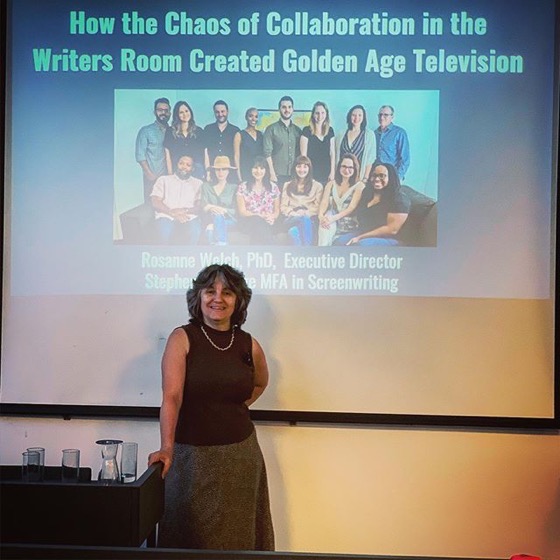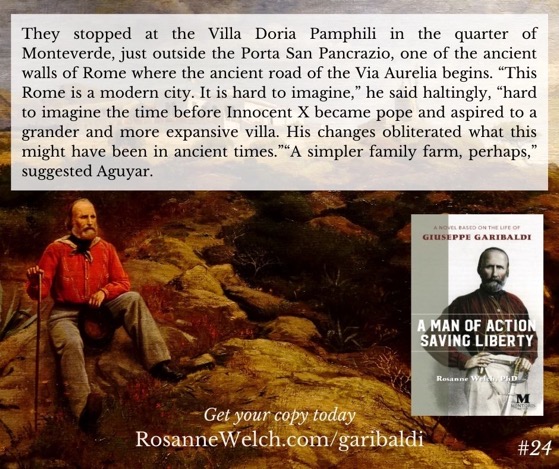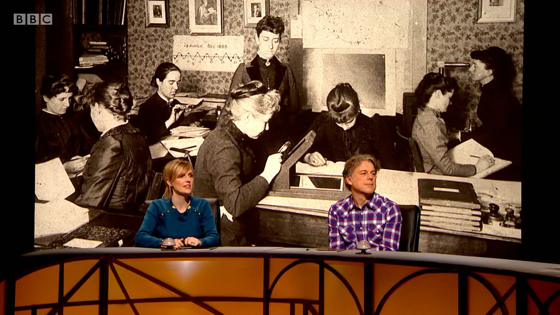Subscribe to Rosanne’s Channel and receive notice of each new video!
When the folks hosting the conference announced their theme as “Screen Narratives: Chaos and Order” the word ‘chaos’ immediately brought to mind writers rooms. I offered a quick history of writers rooms (the presentations are only 20 minutes long) and then quoted several current showrunners on how they compose their rooms and how they run them.
Transcript
Always good to see everybody here. We’re all like on different time schedules so I’m still — I think it’s three in the morning in Los Angeles but that’s okay. Yes, we’re going to talk about this concept of chaos in writers’ rooms, which are really run in chaos, at least the ones in the United States. Just a quick background on who I am. I was in the business for several years. I wrote Picket Fences, Beverly Hills 90210 — which is a show that won’t die because they just did a live show or is just a little crazy and Touched By An Angel for a long time. So this is where I came from in television. This is what I’ve done in academia and writing. My favorite new book is a collection of essays written by many of my students about female screenwriters from the early days and giving us their backgrounds so I’m all about finding more women that we can write about and talk about in our classes. I think that’s important. I’m also the book review editor of the Journal of Screenwriting so if you have any books you’d like to review please let me know. I’d love to get you a free copy and get your review in the journal and also I’m on the editorial board for the Written By Magazine, which is the magazine of the Writers Guild of America. You can access that for free digitally online if you go to writtenby.com or go to wga.org and they’ll have a link to it, but every month we do interviews with either a film person or a television person or whole writer’s room from a show and I think it’s a great way to bring guest stars into a classroom from all over the world. Again, they’re obviously Americans although I interviewed Russell Davies several years ago so we do have some other folks come on into the magazine but it’s pretty cool.
For more information on the Screenwriting Research Network, visit
* A portion of each sale from Amazon.com directly supports our blogs
** Many of these books may be available from your local library. Check it out!
Podcast: Play in new window | Download
Subscribe: RSS
![01 Introduction from How The Chaos Of Collaboration in the Writers Room Created Golden Age Television [Video]](https://rosannewelch.com/wp-content/uploads/2021/02/SRN-2019-Portugal-.jpg)





![Dr. Rosanne Welch Joins Panel on Monkees Books with Plastic EP Live [Video] (54 minutes)](https://rosannewelch.com/wp-content/uploads/2021/02/plastic-ep-monkees-20210216.png)



![49 Appreciating The Voice Of The Writer from Why Researching Screenwriters Has Always Mattered [Video] (1 minute 2 seconds)](https://rosannewelch.com/wp-content/uploads/2021/02/rmw-sao-paolo-49.png)

